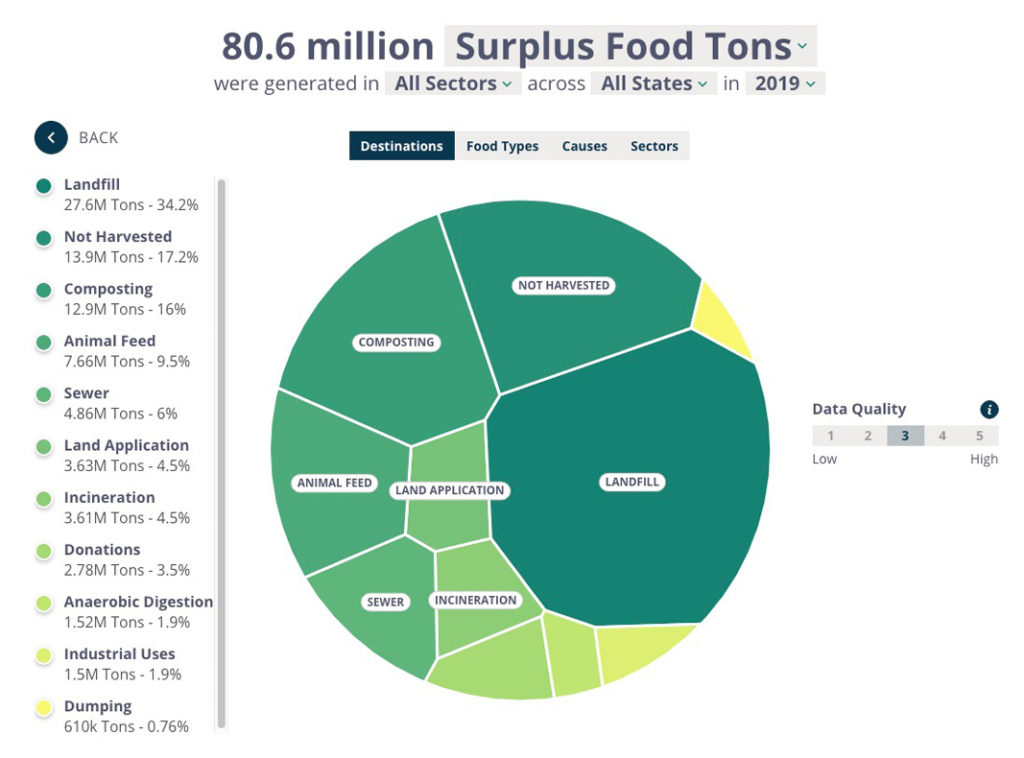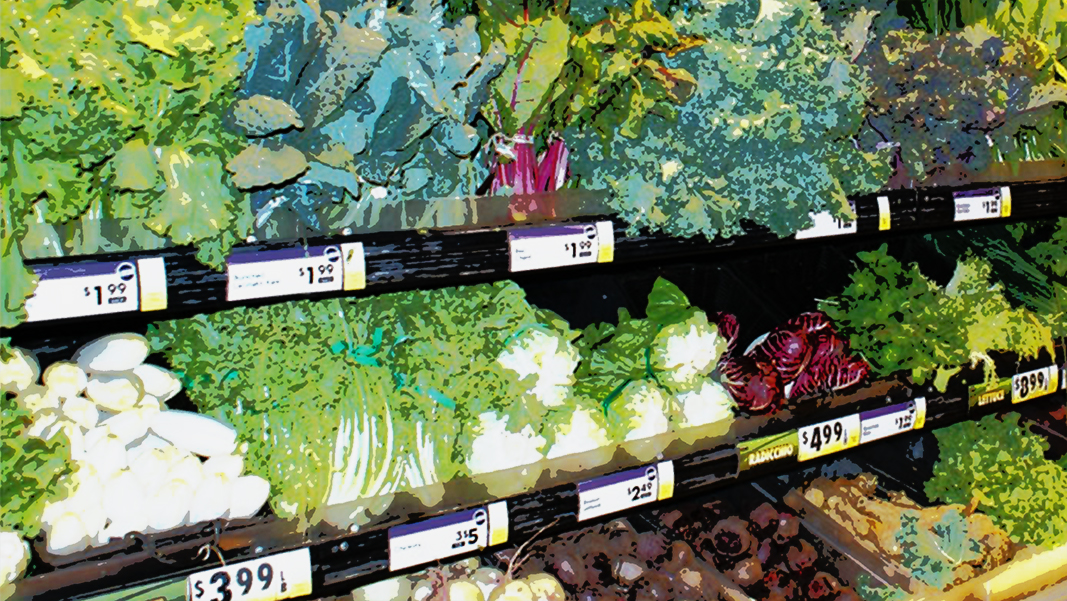ReFED, a nonprofit dedicated to ending food loss and waste across the U.S. food system, released its new Insights Engine in early February, a “first of its kind” online hub for updated data and solutions for businesses, government agencies, funders, nonprofits and others to reduce food waste. Its new data finds that the total amount of food waste has leveled off since 2016 after increasing by 11.9% in the earlier part of the decade, and per capita food waste has actually decreased by 2% over the last three years. “While this demonstrates that food waste reduction efforts are starting to make an impact, more needs to be done to achieve the United States’ national goal to reduce food loss and waste by 50% by the year 2030 — especially as the continued changes to the food system from COVID-19 make avoiding food waste even more difficult,” notes ReFED. “In 2019, 35% of food went uneaten or unsold — the equivalent of throwing away $408 billion, or 1.9% of U.S. GDP. This has enormous impacts across climate and natural resources, food insecurity, and the economy.”
 Insights Engine data shows that more than 50% of waste at the farm level comes from edible food that’s not harvested; 70% of food waste for restaurants and other foodservice businesses comes from customers not finishing the food they’ve been served or taken; and the residential sector is still the largest source of food waste overall and has an even bigger greenhouse gas (GHG) footprint given the added energy required to get food from farm to home. “Food waste is a solvable problem, and we’re excited to say that we’re seeing progress,” says Dana Gunders, ReFED’s Executive Director. “But we need a massive acceleration in order to achieve meaningful change. The good news is that a range of impactful solutions already exists, and we’ve analyzed dozens of them — from the simplest to the most complex. With these new tools, we’re taking the movement from a paper road atlas to Google maps, allowing us to see where we are and the next moves to get us to where we want to be.”
Insights Engine data shows that more than 50% of waste at the farm level comes from edible food that’s not harvested; 70% of food waste for restaurants and other foodservice businesses comes from customers not finishing the food they’ve been served or taken; and the residential sector is still the largest source of food waste overall and has an even bigger greenhouse gas (GHG) footprint given the added energy required to get food from farm to home. “Food waste is a solvable problem, and we’re excited to say that we’re seeing progress,” says Dana Gunders, ReFED’s Executive Director. “But we need a massive acceleration in order to achieve meaningful change. The good news is that a range of impactful solutions already exists, and we’ve analyzed dozens of them — from the simplest to the most complex. With these new tools, we’re taking the movement from a paper road atlas to Google maps, allowing us to see where we are and the next moves to get us to where we want to be.”
ReFED estimates that an annual investment of $14 billion over the next 10 years to implement prevention, rescue, and recycling solutions can reduce food waste by 45 million tons annually. That investment would result in $73 billion in annual net economic benefit for the country, avoid 75 million metric tons of GHG emissions annually, save 4 trillion gallons of water, rescue the equivalent of 4 billion meals annually for the 50 million Americans who are food insecure, create 51,000 jobs over 10 years — and achieve the 2030 reduction goal.
Tools in the Insights Engine include a Solutions Database that provides a comprehensive analysis of 40+ food waste reduction solutions based on impact goals, along with detailed fact sheets on each; a Solution Provider Directory with a vetted list of 700+ nonprofit and for profit organizations ready to help implement food waste reduction initiatives; an Impact Calculator to quantify the impact of wasted food on the climate, natural resources, lost meals, and the economy; and a Food Waste Policy Tracker to stay on top of current and upcoming food waste-related policies at the federal, state and local levels. Complementing the Insights Engine, ReFED released its Roadmap to 2030, a framework to help implement the solutions in the Insights Engine. Roadmap to 2030 evaluates the entire food supply chain and outlines seven key action areas with recommended priorities for each that show where the food system must focus its food waste reduction efforts.













